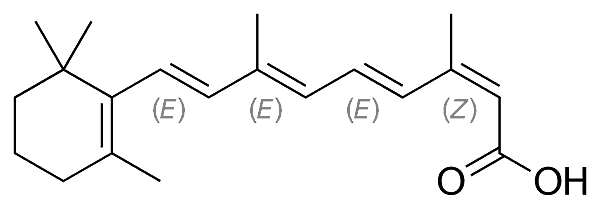Dermatologists will often recommend the drug Accutane (isotretinoin) for those experiencing hard-to-treat acne. When reading the leaflet that comes with the prescription, it’s unnerving to find depression and suicidal thoughts listed among the other safety warnings.
It hurts my heart when I hear about those experiencing depression after taking Accutane. I never took Accutane, but I used to have very bad acne and know the frustration of dealing with it. I’ve also known many who took Accutane and claimed it did make them feel depressed. So, does Accutane depression go away?
Accutane depression does go away anywhere from 3 days to 3 weeks after you stop taking the medicine. The longer you took Accutane, the longer it will take for all side effects to go away. If feelings of depression last for more than a few weeks after you stop taking Accutane, talk to your doctor.
In my research, I found that only a small percentage of Accutane users experience depression. Also, although not proven, there are some interesting theories that describe why Accutane may cause depression. Read more to learn about Accutane depression and when it goes away.
Does Accutane Depression Go Away?
If you have experienced feelings of debilitating depression for longer than 3 weeks after you stop taking the Accutane, then go see a doctor. It is common for those with diagnosed clinical depression to wonder if their symptoms will go away on their own over time. “Time heals all” is true for many things, but it is not always a cure for depression.
Depression brings on feelings of helplessness that disrupt almost every aspect of the sufferer’s life, including their work and relationships.
If you have been diagnosed with depression, you need to get the proper treatment in order to get better and back to your normal, happy self. You should not suffer helplessly when depression is one of the most highly treatable illnesses.
In fact, 80% of those who were diagnosed with depression and then got treatment end up feeling better after treatment. Treatment includes medication, therapy, or a combination of both.
Many medications, such as antibiotics, cure the illness directly. Antidepressant medication, however, does not directly cure depression; it only corrects the underlying imbalance of chemicals.
Many people have had their depression pass. For example, they had a brief episode of depression that resulted from a temporary event in their life. But it is important to note that even though the depression has passed, the underlying vulnerability can remain, waiting to be triggered by the right set of events.
Only a Small Number of Users Get Accutane Depression

Despite the widely-held belief that Accutane (isotretinoin) causes depression (commonly referred to as Accutane Depression), there is no clear, proven link between the two. For every study that has found a high risk of depression in those who take Accutane, there is another study that has shown there is zero risk.
However, with the number of users who have reported feeling depressed or having changes in their mood, it can be safe to say that Accutane does pose a risk of depression to a small number of users. As well, many report feeling depressed well after taking the medicine.
Depression in those who take Accutane is not very common. Again, the studies are mixed, with depression happening anywhere from 1% to 10% of people taking the medication. With such a small percentage, it can’t be said for certain that Accutane causes depression.
While Accutane-induced depression can affect those who have zero histories of depression, a large number of people have had conditions that have placed them at risk. These pre-existing conditions include a family history of depression, bipolar disorder, or past drug abuse. If you have this history, you are more susceptible to side effects, including depression, and it can take longer than 2 or 3 weeks for the depression to go away.
It’s important to point out that just because you’re taking Accutane, or took it in the past, doesn’t mean you will experience depression. Most who did become depressed while using it found that their symptoms disappeared as soon as they ceased taking it.
But there are, of course, some people who have reported having persistent depression and suicidal behavior even after they quit using the drug.
For more insight and tips on Accutane depression and how to make it go away and feel normal again, see the below video:
Does Accutane Cause Depression? Possible Theories
There are case reports that suggest a relationship between taking Accutane and depression; however, there is no proven link. There are some theories developed to present why this link can exist.
Accutane is derived from vitamin A, and vitamin A is essential for the development and normal functioning of the brain throughout life. It’s responsible for many of the important functions in your central nervous system.
Some researchers have shown that Accutane may change the way serotonin is made and utilized by the body. Low levels of serotonin have been linked to bipolar disorder, anxiety, depression, and aggression.
Another possible theory examines how Accutane may disrupt the part of the brain called the hippocampus. The hippocampus is constantly creating neurons in a process called neurogenesis.
Studies conducted on mice and rats had shown that when they were given Accutane, neuron formation in the hippocampus was reduced. This drop-in neurogenesis may explain perhaps why some experience depression from taking Accutane.
Another theory for why some experience depression where others do not is that neuron formation is already reduced in some way for some, perhaps from genetics.
Therefore for these people, they will be more susceptible to neurogenesis caused by taking Accutane. Whereas others who have very healthy-functioning neurogenesis before taking Accutane will not experience a drop in neurogenesis, and therefore depression, from taking it.
The acne itself could be the cause of depression and even increase the risk of suicide. A study in 2010 published on BMJ, a weekly peer-reviewed medical journal, studied 5,700 Accutane users. They found the risk of suicide was much higher among those who had stopped taking the Accutane for six months and had the acne come back. [1]
The return of severe acne and the fear of having to live with it for the rest of their lives was at the heart of the listed 128 suicide attempts. This was not found by those who kept taking the Accutane and were managing or clearing up their acne.
See the below video for a testimonial and personal story of Accutane depression and how long it took to go away:
If Left Untreated, Depression Causes Many Other Issues
If left untreated, depression from Accutane or any other medicine can be extremely debilitating and interfere with every part of life. It can disrupt work leading to money issues. It can disrupt relationships and much more, which leads to a vicious downward cycle.
The most serious cases lead to thoughts of suicide if it does not receive immediate attention. Accutane depression does go away for most, but if you are still feeling depressed and have mood swings about 2 or 3 weeks after taking it, then see a doctor.
If left unchecked, depression can also lead to a wide range of other health issues, including obesity, diabetes, heart disease, Alzheimer’s disease, and many other chronic disorders. These disorders also act as a vicious cycle; for example, depression can accelerate the progression of heart disease, hypertension, and diabetes.
Having depression can also make it much harder to treat other medical illnesses because the sufferer has a lack of energy and motivation to follow the treatment regimens.
The other concern about depression is that it tends to come back. Evidence has shown that someone who has had just one episode of depression has a 50% risk of having a second episode. With each additional episode, this risk climbs, increasing to 70% after a second episode and 90% after the third episode. [2]
Still wondering does Accutane depression go away? See the below video for more insight into Accutane and its side effects:
Never Give Up and See a Doctor or Trained, Qualified Professional
It hurts me to hear of people who suffer from depression, especially if it is from skin issues because I have had the first-hand experience in the feeling of desperation from having severe acne and eczema. I’ve battled through both for long periods of my life and felt there was no end in sight.
But never give up, and please don’t ever give in to suicidal thoughts as I am telling you from my experience, who also had some suicidal thoughts in my life, it can be managed and kept at bay for life by seeking help.
If you have been experiencing depression that is debilitating in your life, preventing you from enjoying life for more than 3 weeks, please go see a doctor as it is essential to get a qualified professional involved and get your life, which is so precious back on track.
Conclusion – Does Accutane Depression Go Away?
So, does Accutane depression go away? Accutane depression does go away, often between 3 days to 3 weeks after you stop taking it. The longer you were on Accutane, the longer it will take for the feelings of irritability and mood changes to subside. If you still feel depressed 3 weeks after taking Accutane, see a doctor.
Related Questions
Why was Accutane discontinued in the US? Isotretinoin was first marketed as Accutane by Hoffmann-La Roche. It sold well for several years, but in 2009, Roche decided to discontinue manufacturing due to competition by the many generic versions of the drug and in the setting of multiple lawsuits over side effects.
Does Accutane permanently cure acne? Treatment with isotretinoin often results in prolonged clearance of acne, which can be permanent for some patients. However, I recommend using natural, homemade treatments instead as they are highly effective and lack the side effects.
How long does the average depression last? On average, an episode of major depression lasts 4 to 8 months. With treatment, most people recover in 3 to 6 months.



